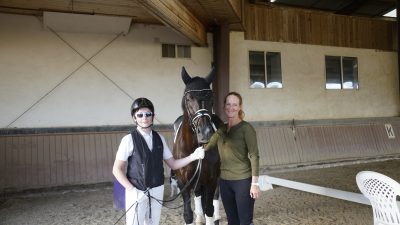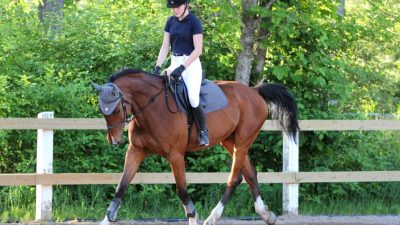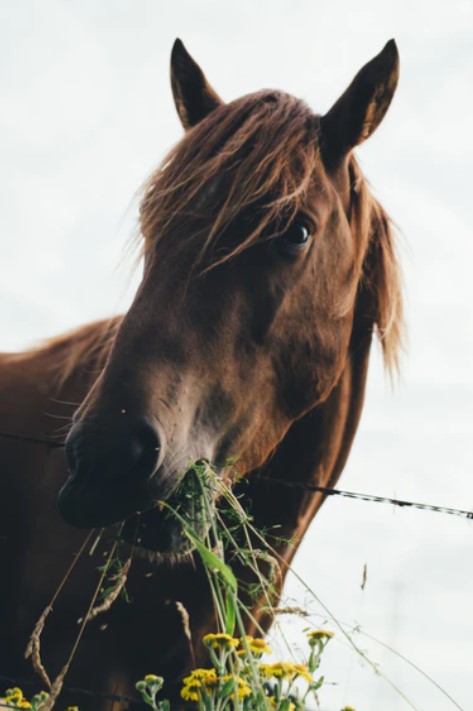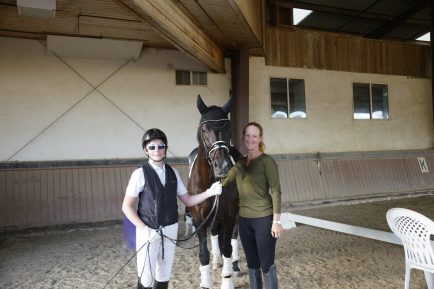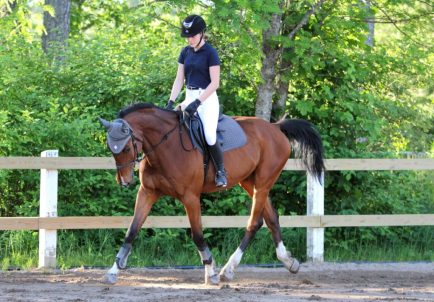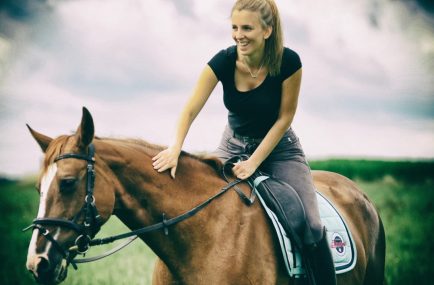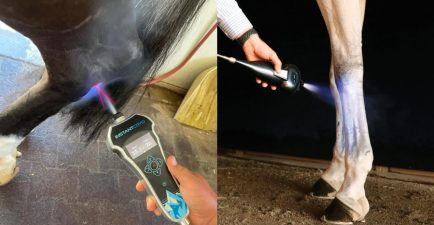Is grass low in protein or high? What about carbohydrates and sugars? Let’s find out!
What Nutrients Does Grass Contain?
Horses can survive by eating a diet that consists entirely of grass, but many of us never stop to thing about what is in our horses pasture land.
It is easy to underestimate the nutritional content of grass. Our horses eat this green vegetation all day long, and can stay fit and healthy by just consuming grass. But what exactly is in this incredible horse feed?
Grass is high in vitamins, as well as some essential minerals. It also contains sugars, in the form of carbohydrates, and protein. Grass also contains fiber, which aids digestion.
The nutrient levels of grass will depend on the stage of growth. Young grass that is under 3 inches tall is high in protein, starch, and minerals, but low in fiber. Taller grass has lower levels of protein, starch, and minerals, but the fiber content is higher. When grass has flowered and created seeds, the nutrient levels drop to a point where they do not provide adequate nutrition to an adult horse.
Is Grass Low In Protein?
The protein content of grass will vary widely according to the time of year and stage of growth. Young grass that is growing rapidly in warm spring weather will contain high levels of protein, around 20%. This is the same level of protein as a feed designed for growing youngstock, horses that are breeding, or equines in hard work!
Under more normal conditions, once the spring flush is over, the protein content of grass starts to drop to around half this amount. These figures vary widely according to the type of grass – ryegrass can have protein levels as low as 11%.
Is Hay Low In Protein?
The protein level of hay will vary according to the type of grass it is made from, and when it has been cut. Hay made mainly from grasses normally contains between 8-14% protein. If legumes are used to make hay, such as alfalfa and clover, this increases to 15-22%.
The ideal hay blend for horses is one that contains both grass and legumes. It should consist of a mix of grasses, to give an even nutritional balance. For the optimum hay content, grass should be cut before it flowers and sets seeds.
Why Do Horses Need Protein? – Is Grass Low In Protein?
Protein is essential for horses as it is the key nutrient required to build, repair, and maintain body tissues. Every single cell within the body contains protein, and this incredible substance is often referred to as the building block of growth.
A mature and healthy horse does not need a huge amount of protein in the diet, as it just needs enough to repair and replace damaged cells. An adult horse needs around 10% protein in the diet, which is normally the same amount they get from good quality grazing land or hay. The average food intake of a 500kg adult horse per day is 22 lb dry matter hay or grass, which provides 1.4 lb of protein.
However, at some stages during horse’s life, higher levels of protein are needed:
- Mature horses in heavier work need around 2lb of protein per day. It is unlikely that these requirements will be met using grass and hay, so a fortified feed is normally given as well to meet the protein requirements of the horse.
- During the last trimester of gestation, a broodmare needs high-quality protein. This is because the unborn foal is developing rapidly, resulting in an increased demand for protein. Good quality grazing supplemented with alfalfa is often enough to meet these requirements, or a high protein concentrate feed can be added to the diet.
- After a foal is born, a broodmare will need additional protein during the first three months of lactation. It may be necessary to feed up to 7 lb of high protein feed daily in addition to grass and hay.
- Younger horses need additional protein after they are weaned. This should be carefully calculated, to avoid rapid growth which can lead to musculoskeletal issues.
- Young horses in training may need up to 2lb of protein per day, and often require a high protein feed alongside good quality forage and grazing.
- So, as we have learned, the question of is grass low in protein depends on several factors. All types of grass eaten by horses contain protein, but the amount fluctuates according to the quality of the grass, the weather conditions, and the time of year. Adult horses need a continuous but low amount of protein in the diet, for repair and maintenance of body tissues.
- · We’d love to hear your thoughts on is grass low in protein! Do you struggle to find good quality grazing land for your horse? Or maybe you’ve got the opposite problem, and your horse puts on too much weight when he eats grass? Leave a comment below and we’ll get back to you!
· FAQ’s
· What Nutrients Is In Grass?
- For horses, grass is an excellent source of energy, as well as providing them with essential vitamins and minerals. Grass also has a high water content, helping to keep the horse hydrated. The fiber in grass is vital to maintain a healthy digestive system.
· Is Grass A Carbohydrate Or Protein?
- Grass contains both protein and carbohydrates. The levels of each will vary according to the season and the growth rate of the grass, as well as other factors such as the weather and soil quality.
· Does Grass Contain Sugar?
- Grasses do contain varying amounts of sugar, and this can be a big problem when feeding grass to horses. They have two types of sugar – simple sugars which are produced via photosynthesis, and stored fructans in the stem of the grass.
· What Stage Of Growth Does Grass Have The Lowest Protein?
- The protein content of grass varies according to the season and the type of grass. Most cool-season grasses have higher levels of protein in the spring and fall.
Original article: Is Grass Low In Protein? Horse Grazing Nutrition Explained! – Best Horse Rider
www.royalequestriancollection.com – check our website to purchase and enjoy our products for your horses and you.










